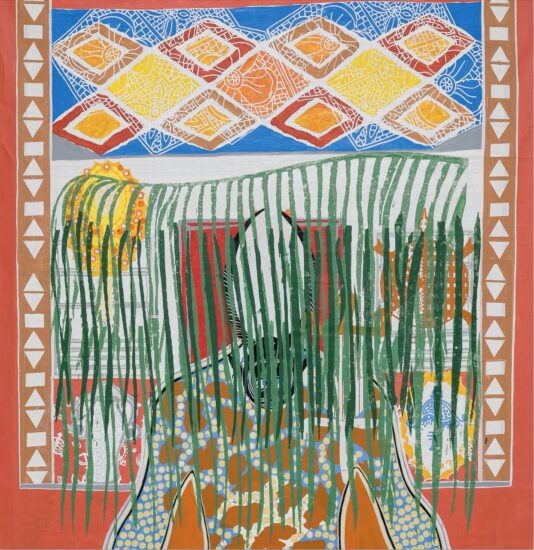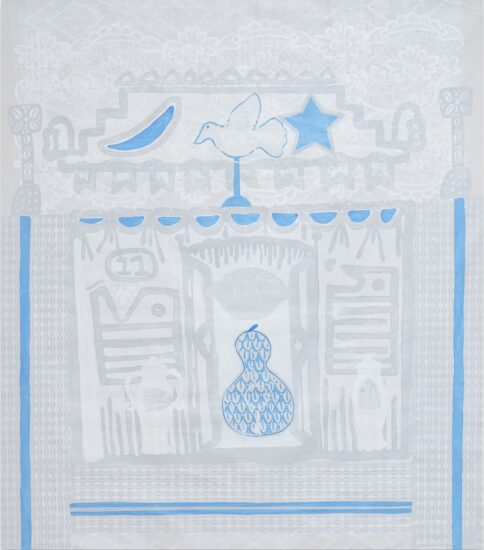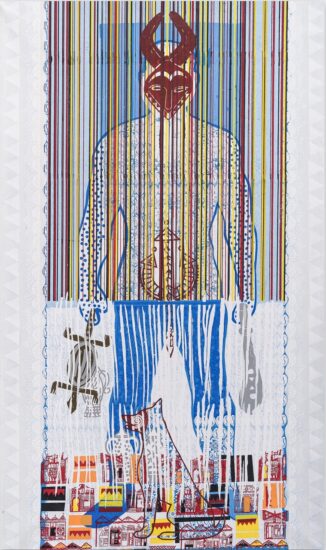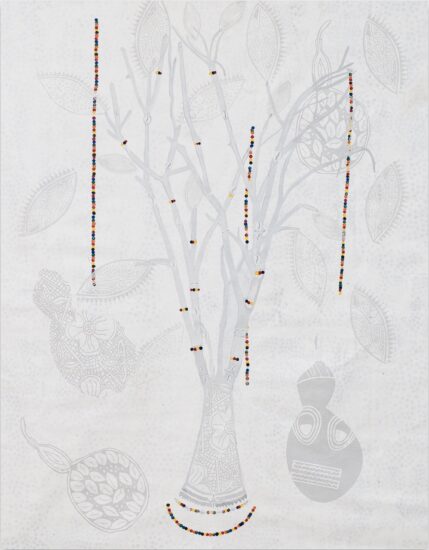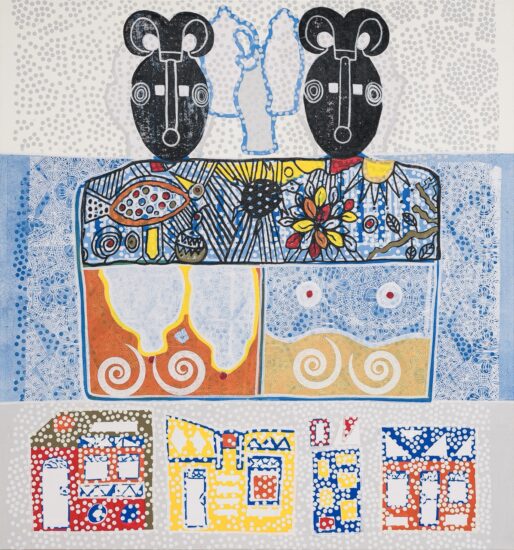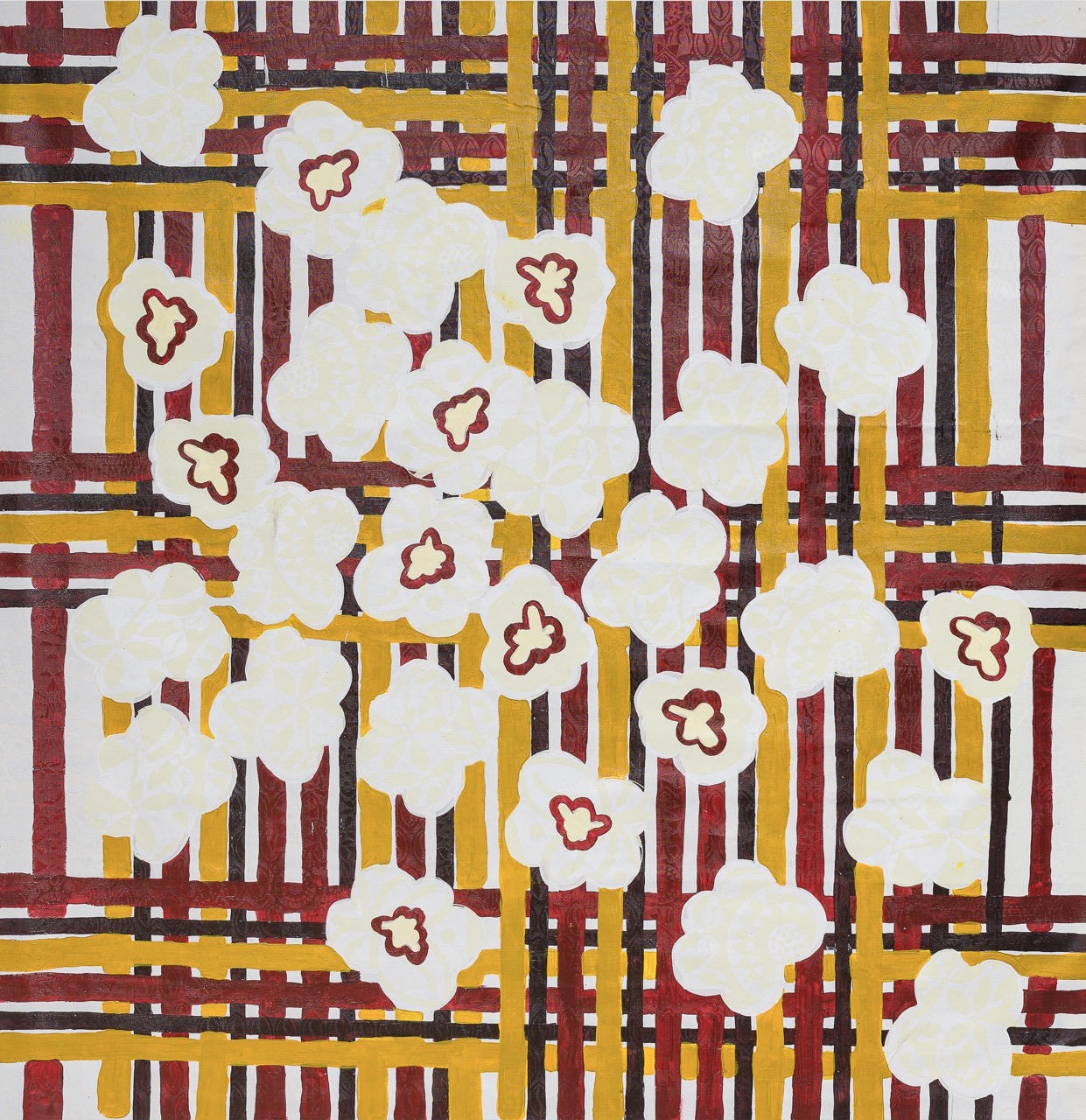Ames Yavuz is pleased to present Mariwô: A Estética do Deslocamento, the first solo exhibition in the UK of Brazilian artist, Alberto Pitta. On view will be new works from Pitta’s Mariwô series, exploring the spiritually significant motif of the Oil Palm frond through screen-printed and painted textiles.
Since the late 1970s, Alberto Pitta has been engaged in the myriad Afrodiasporic cultural traditions of his home region, Bahia, Brazil, especially in Carnival blocos, community-organised parades with distinctive aesthetic practices and spiritual worldviews. Printed and embroidered textiles, as embodied forms of “writing”, communication and storytelling, have grounded the artist’s more than forty-year long career. A researcher, archivist and originator of Afro-Bahian print styles, Pitta thinks of these fabrics as “second skin” that their wearers “transform into free, mobile expressions of culture, and “passports” that allow communities to “navigate the city with pride and purpose”. His work traces the contemporary ancestry of Black Bahia, with dense symbolism drawing from the diverse histories of its people, including the transatlantic slave trade and the mythic universe of West African religions.
Pitta’s Mariwô series centres the African oil palm tree, considered sacred in Candomblé tradition, the Afro-Brazillian religion in which Pitta’s mother, Ialorixá Mãe Santinha de Oyá, was a spiritual leader. As a ritual object, the palm fronds are shredded and hung on the doors and windows of shrines and ritual spaces, terreiros and casas de santo, as protectors. In the works, the shredded frond is abstracted to become part of the symbolic matrix of the print.
In all his work, Pitta asks how art becomes relevant and offers encounters between contemporary and popular art. He served as the artistic director of the Olodum bloco for 15 years, and created the Cortejo Afro, a bloco dedicated to Afro-Brazilian values and ideas, and where he introduced his now-instantly-recognisable style of white-on-white prints. Celebration and collective joy travel as key affective tenets of his work, from his public work to studio practice. Pitta also works with the Oyá Institute, founded by his mother to contribute to the human, intellectual, and artistic development of vulnerable children and young people in the neighborhood. Pirajá, where the artist has his studio. In every axis of his practice, art-making is a means to rescue, preserve, transmit and enliven cultures, of collective self-affirmation and liberation against racism.
Alongside the exhibition in London, works by Alberto Pitta are currently on view at the 36th Bienal de São Paolo, led by general curator Prof. Dr. Bonaventure Soh Bejeng Ndikung and his team.
